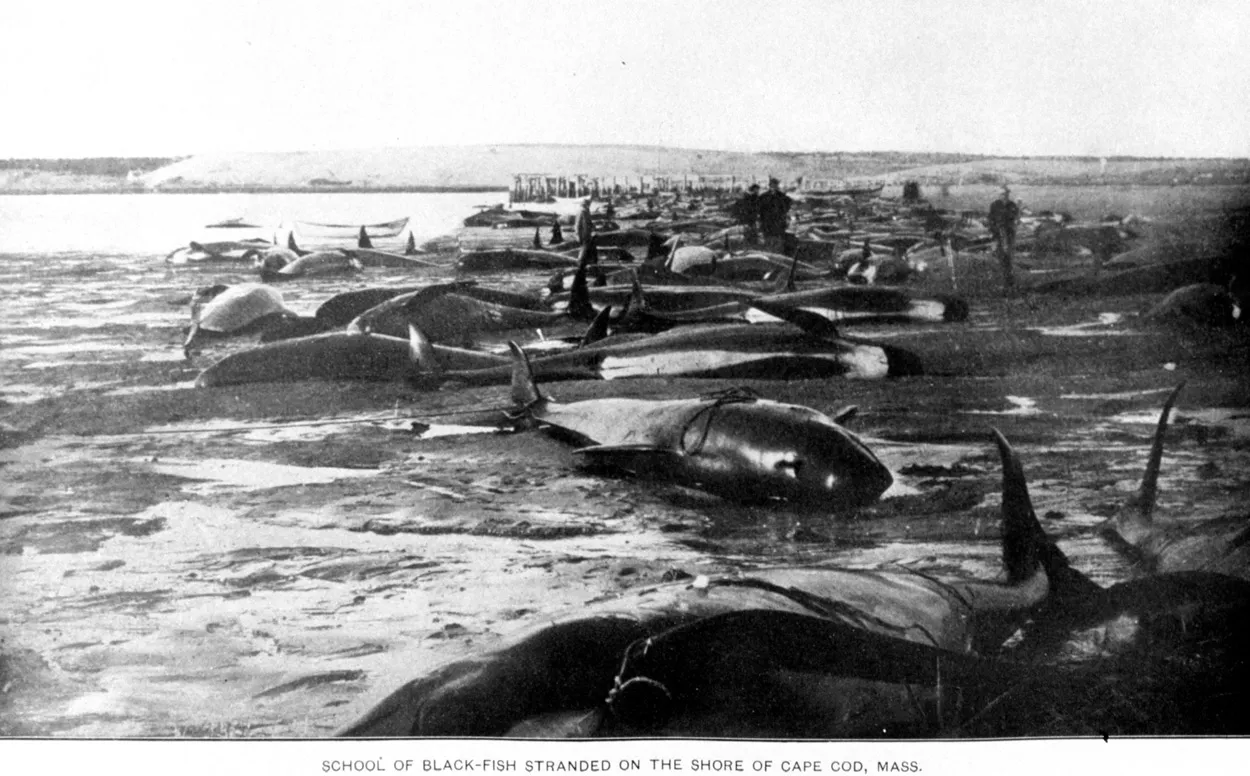Blackfish or Pilot Whales stranded at Cape Cod
Whales and Whaling pictures
Next
Previous
Back to gallery
Back to whale and whaling
thumbnails
School of black-fish stranded on the shore of Cape Cod, Massachusetts, 1902. Blackfish or Pilot Whales are small toothed whales intermediate in size between dolphins and the larger whales. They frequently form schools particularly while migrating and sometimes will end up stranded like this after swimming into the wrong bay or estuary, the tide goes out, they still try to swim in the wrong direction and they get stranded.
Laying on their sides, they cannot support their weight in air and have the problem that internal organs are crushed under their own weight. In particular they face breathing difficulties in expanding their lungs with muscles that are unpractised at doing so with the mass of their body on top of the lungs. The skin also dries out and may crack. Tragically such strandings result in the death of the whales, in more recent times, volunteers have kept whales moist and tried to keep them alive and refloat them when the tide returns, though sometimes the whale then attempts to swim back in the direction that led to it being stranded in the first place.
Such strandings are now thought to be the result of temporary changes in the earth's magnetic field. Cetaceans migrate by following low density magnetic lines and disturbances of the earth's magnetic field that varies regularly within set limits cause the whales to take the "wrong turning" with disastrous results. Such fluctuations happen more commonly at coasts, probably exacerbated by the fact that rocks that may be magnetic are more likely to be shallower and so nearer to the whales.
Such a use of magnetism for navigation is found more commonly in animals that live in the water than terrestrial animals except for birds, which of course use this sense when some considerable distance away from the earth (and possibly magnetic rocks).
Previous
Next
Back
to thumbnails
Picture used courtesy NOAA

